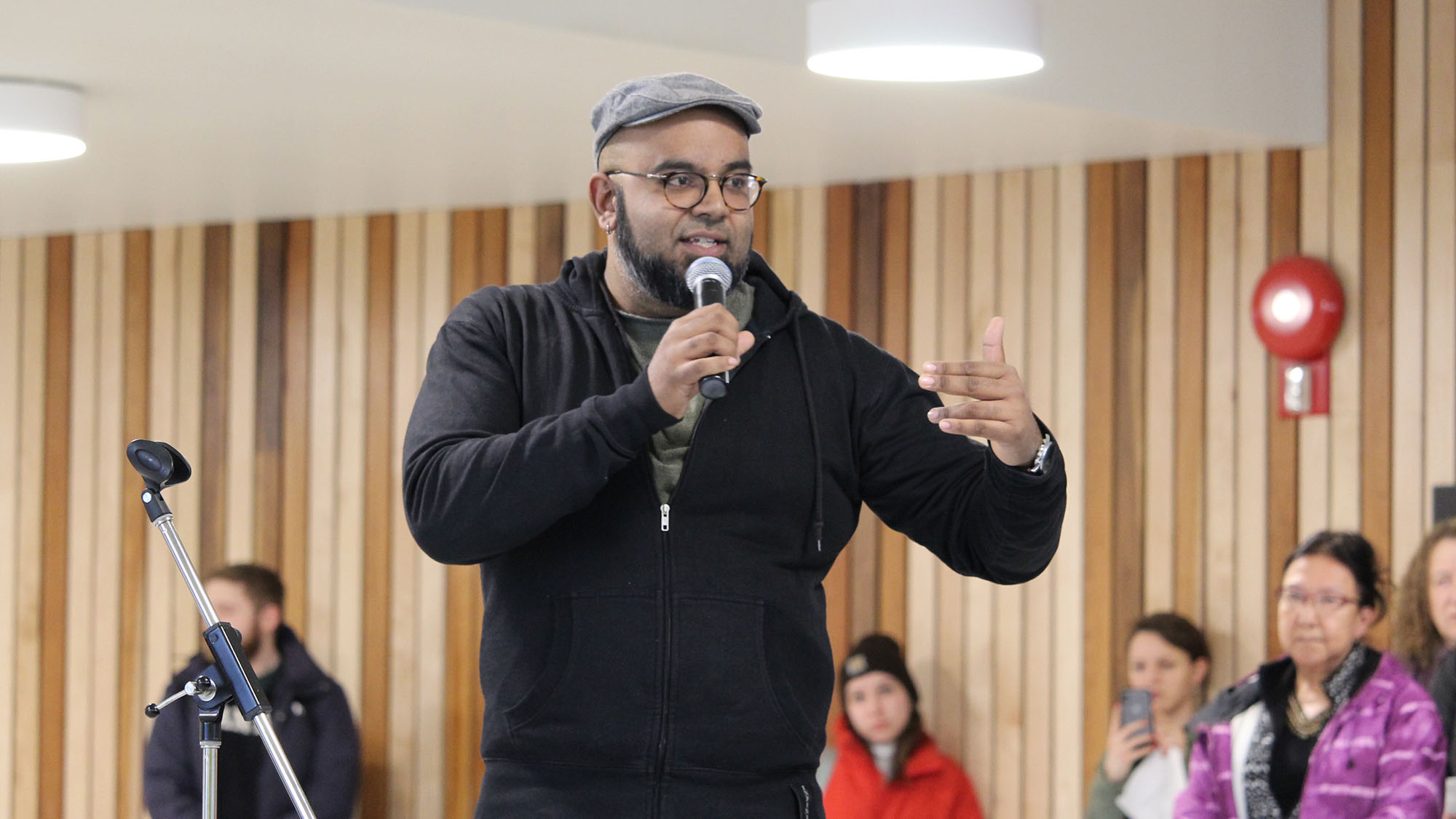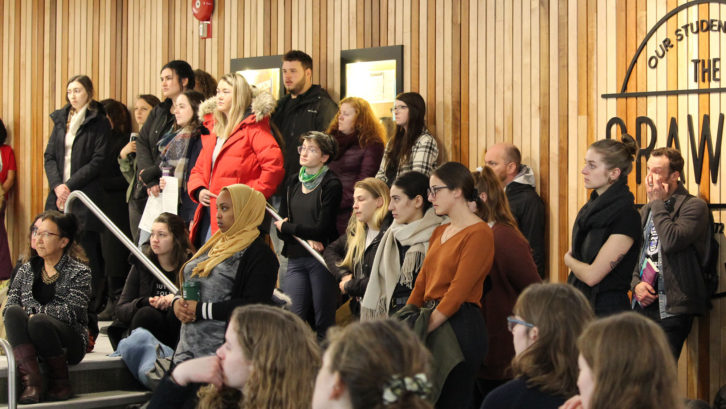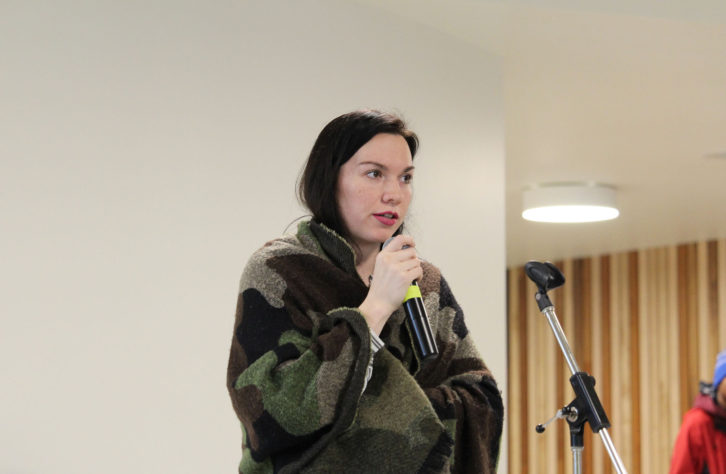Dalhousie University hosts ‘talk-in’ on Indigenous sovereignty
Faculty and community members give context to history behind the protests in Wet'suwet'en

caption
Host of Dalhousie's 'talk-in' Ajay Parasram addressing the crowd.When reporting on the ongoing protests in Wet’suwet’en territory in B.C., Ajay Parasram believes a key element of the debate is being left out.
Across Canada, demonstrators are opposing a pipeline that will go through the area.
“We are constantly being presented with facts and figures about job creation and the economy and the environment, but nobody is really focusing clearly on the issue of sovereignty,” said Parasram, a Dalhousie University international development professor.
Parasram co-ordinated a talk-in at Dalhousie on Thursday to address the sovereignty of Indigenous people in light of what is happening in Wet’suwet’en. Professors at Saint Mary’s University and Mount Saint Vincent University also co=ordinated events at their own schools.

caption
People line the wall of Dalhousie’s student bar for the talk.Tensions escalated earlier this year for those opposing the Coastal GasLink pipeline after the B.C. Supreme Court granted an injunction allowing the RCMP to arrest and remove protesters blocking the pipeline construction.
In an interview before the Dalhousie event, Parasram provided one way of understanding sovereignty.
“Who are the keepers of the land and how does their relationship with land predate what the West thinks about land,” he asked.
The westernized view of land echoes that of John Locke and the belief that people have to make the land their own through industry, Parasram explained.
“This whole kind of concept of Canada as this frontier country gets superimposed over Indigenous ways of knowing and being that have predated us as a country,” he said.
Indigenous activist Rebecca Moore was one of the first to speak at Dalhousie’s talk-in, which attracted about 80 people to the university’s student union building.

caption
Rebecca Moore addressing the crowd.“We are still currently in a position of war with colonial Canada and essentially in a hostage position being held hostage for our land and resources,” said Moore.
Moore also spoke about the role Prime Minister Justin Trudeau plays in Indigenous sovereignty. When asked about the protests, Trudeau said “we’re also a country of the rule of law,” yet he ignores the Peace and Friendship Treaties and their inherent rights in Mi’kma’ki, said Moore.
“I heard the prime minister speak of the rule of law and I thought it was funny because they disgrace their own rule of law,” said Moore.
Isaac Saney, a professor and the director of Dalhousie’s transition year program, also spoke at the event.
“At the heart of the struggle of the Mi’kmaq nation and at the heart of the struggle for all Indigenous people and nations here in Canada is to fight for self-determination and sovereignty,” said Saney. “It is not a fight to receive crumbs and recognition from the Canadian state.”
He said this fight is everyone’s fight.
“If the Canadian state can get away with this attack on Indigenous peoples it can get away with an attack on workers, and on students and on anyone,” said Saney.
Correction:
About the author
Olivia Malley
Hailing from Dartmouth Nova Scotia, Olivia is a journalist passionate about the HRM. Outside of reporting she enjoys singing in King's a capella...

R
Rebecca
T
Terra Tailleur